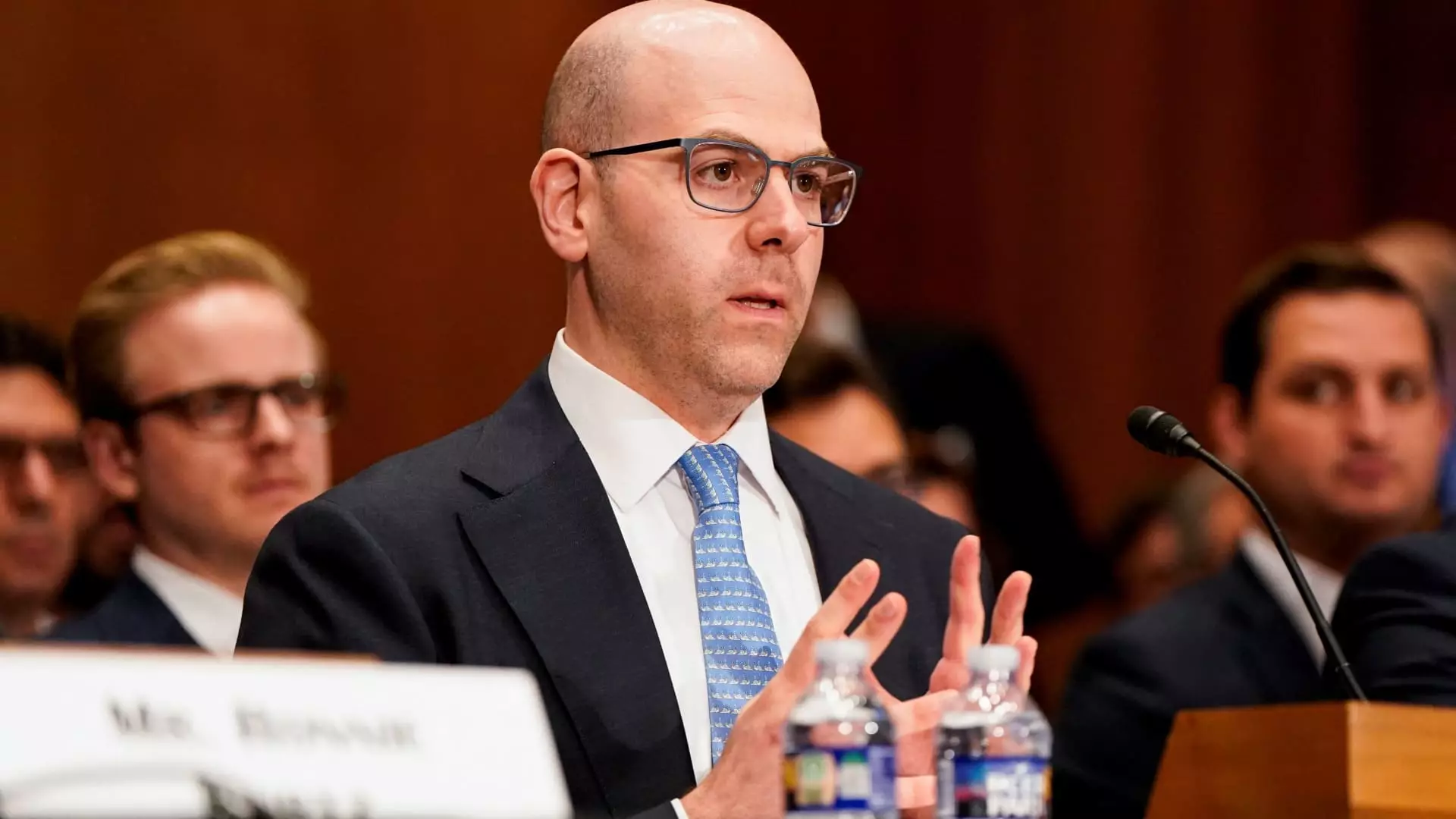In today’s political landscape, the independence of the Federal Reserve is increasingly under scrutiny. Stories like that of Governor Stephen Miran reveal the fragile boundary between economic policymaking and political influence. Miran’s decision to vote against the majority—favoring a larger interest rate hike—demonstrates that individual judgment still exists within the Fed, despite mounting pressures from the executive branch. His assertion that he made his decision independently, without any influence from President Trump or staff, stands as a commendable act of resilience. However, it also exposes the inherent risks faced by policymakers who dare to diverge from political expectations, especially when the administration openly campaigns for more aggressive rate cuts.
Miran’s public statements about not discussing his votes with Trump and his emphasis on his independence suggest a conscious effort to preserve the fallacy of the Fed’s autonomy. Yet, the mere mention of political interference—like Trump’s vocal criticisms of Chair Jerome Powell and the push to influence governor appointments—raises uncomfortable questions. Is the Fed truly insulated, or is it merely navigating a delicate game of appearances? Miran’s stance signals a critical stance against undue influence, affirming that unelected officials have a duty to prioritize economic stability over political expediency. His willingness to openly discuss his unconventional views also sets an important precedent for transparency, challenging the narrative that monetary policy is merely a pawn for political power.
The Personal Courage of an Independent Central Banker
What makes Miran’s position particularly compelling is his clarity about his own views and his readiness to face potential backlash. His decision to vote against a quarter-point rate cut—favoring a larger increase—goes against the consensus, reflecting a willingness to prioritize economic fundamentals over conforming to political pressure. This act underlines an essential principle: central bankers must have the courage to dissent when necessary, even if it means risking criticism or marginalization. Miran’s upcoming speech at the Economic Club of New York serves as a platform to articulate the rationale behind his stance, reinforcing the importance of independent thought in a polarized environment.
His remarks also touch on the importance of integrity in public service. Miran rejects the suggestion that his leave as the head of the Council of Economic Advisers compromises his independence, citing a clear end date for his current term. His candid acknowledgment that he would resign if ordered to serve beyond that date indicates a firm commitment to keeping his independence intact. Such statements are vital because they serve as a reminder that independence isn’t just a formal status—it’s a personal and professional ethic. Miran’s honesty is refreshing in an arena where political pressures can easily cloud judgment, and it provides a blueprint for other policymakers committed to upholding the integrity of their roles.
The Broader Implications for Monetary Policy and Democracy
Miran’s story also raises broader questions about the role of the Federal Reserve in a democracy. The perception that central banks can be influenced by political figures diminishes trust among the public and market participants alike. It underscores the importance of safeguarding the independence of monetary authorities, not just in theory but in practice. When leaders like Trump publicly target Fed officials or threaten to remove them based on policy disagreements, it erodes confidence in the policy process.
Despite these challenges, the apparent civility in Miran’s interactions—highlighted by his remarks about his reception at the Federal Reserve and the collegial atmosphere—suggests that professionalism can prevail even amid controversy. Yet, it is imperative for central bankers to remain vigilant and steadfast in defending their independence in the face of misuse of political influence. Miran’s willingness to speak transparently about his views and his conviction in making independent decisions serve as critical models for future leaders tasked with balancing the demands of their position and the pressures of the political environment.
In an era where the line between monetary policy and political agendas is increasingly blurred, Miran’s stance exemplifies the fundamental importance of independent judgment. His role as a dissenting voice, motivated by a genuine commitment to economic stability, champions the core values of central banking. It reminds us that even in highly politicized settings, integrity and independence are essential to maintaining the credibility of monetary policy and, ultimately, the health of the economy.

